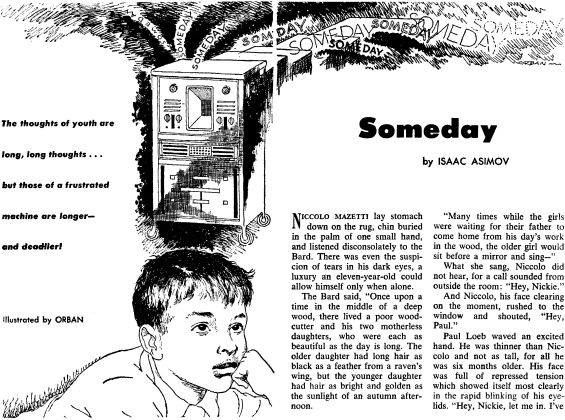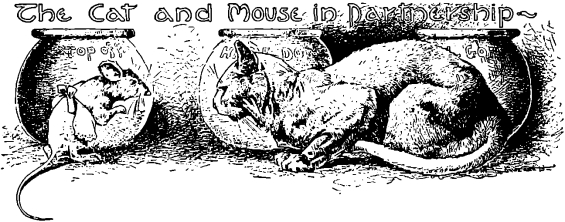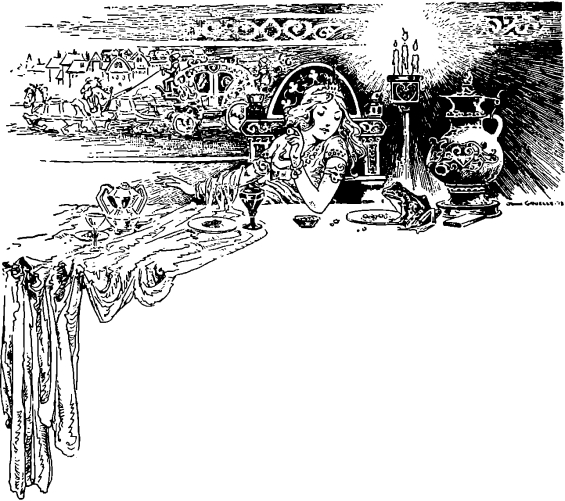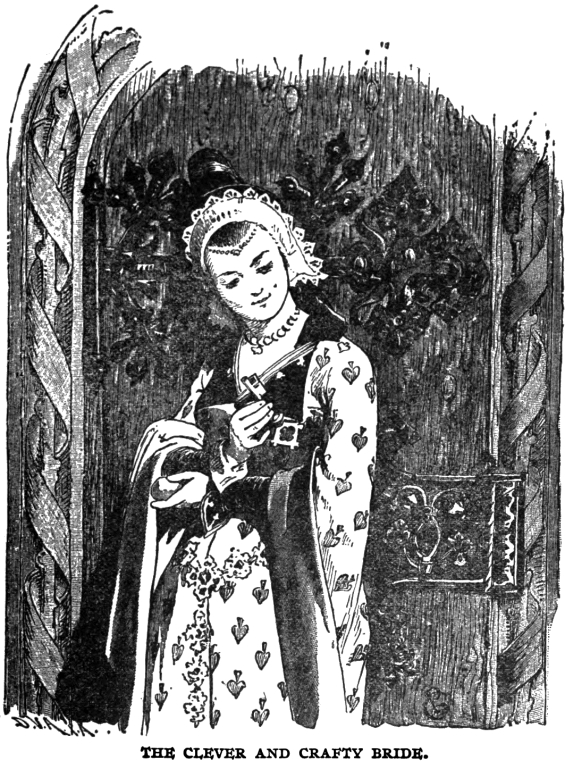
 The SFFaudio Podcast #427 – Hansel And Gretel by Bros. Grimm; read by Julie Davis. This is an unabridged reading of the folk tale (16 minutes) followed by a discussion of it. Participants in the discussion include Jesse, Julie Davis, and Maissa Bessada
The SFFaudio Podcast #427 – Hansel And Gretel by Bros. Grimm; read by Julie Davis. This is an unabridged reading of the folk tale (16 minutes) followed by a discussion of it. Participants in the discussion include Jesse, Julie Davis, and Maissa Bessada
Talked about on today’s show:
a folktale, a fairy tale, a lot of magic, a lot of animals, a lot of birds, strange phrases, a cat, the bird episode, Grimm’s Fairy Tales translated by Lucy Crane with illustrations by her brother Walter Crane, the gingerbread house, candy canes, the family’s house, too nice for a starving family, how can you not love this story?, spawned a whole industry, Jesse’s the worst son, no respect for his mother, indirect approach, a Philip K. Dick story, Jesse’s inside, The Cookie Lady, a suburban fantasy, a Hansel and Gretel story without Gretel, Bubber, the woman he visits after school, oh Philip K. Dick!, all the street names, Pine Street and Elm Street, why are the two stories so different, she’s not a regular witch, absorbing the life energy, a fat little boy who loves cookies, she’s young and beautiful, the wind is blowing, just a tumbleweed there, a horrible version of Hansel and Gretel, recognizing that you have to have help, both the children are contributing to the welfare, taking turns, wiser vs. cleverer, a Deep Space Nine episode, Jake Sisko‘s muse sucks the life energy out of him, the Star Trek universe is suffering from population decline, a little girl in Star Trek: Voyager, as soon as possible, bad writing, Wil Wheaton, o father I’m looking at my little white kitten, you young fool, sunshine on the chimney pot, a pigeon, why aren’t they eating the cat and the pigeon?, we ate your cat last night!, a strange story for modern kids, going without food, a famine in Germany, cannibalism, who’s the good guy and who’s the bad guy, is the dad horrible or just weak?, he’s convinced, step-mother, his wife and his two children, I pity the poor children, different translations, slippy, how she went away, she “died”, is she’s the witch?, and then the witch says almost the exact same thing, the same pattern, the wife being gone…, we can read it the way kids read it, no subtext, how we’re supposed to read it, if you’re reading it to Jesse…, strength against adults, ganging up on the kids, if the mother is a witch…, it takes a little while, sexist!, once a man gives in he has to always give in, close reading, power relationships, giving into authority, keep the faith, math class, the wife would listen to nothing, “he who says A must say B too”, is that the logic?, if a man yields once he’s done for, more concrete in your face, like a cigarette, I already spanked my kid I might as well kill him, Coraline by Neil Gaiman, the nice monster, how do children see their parents?, as we discover…, the part we all understand, I want it now!, what are these stories for? what is their purpose?, at the end of the day kids need to go to sleep, something to chew over while they sleep, how do you choose what story and who to tell it to?, the circumstances for the telling of Hansel and Gretel, the story gets past your defenses, you’re a team against us, how do we steal from mom?, together rather than apart, how to forebear against…, a different message for a different person, where the story resonates, poor little Bubber had no brother or sister to save him from the excesses of his desires, Julie’s first thought, stories adults told, little girls now big girls, too lively?, a dinosaur, interactive storytelling, revelations, The Robber-Bride, for grown ups only?, knock knock the Grimm Bros. are at the door, here are the stories we tell, nothing else going on, the whole purpose, learning to stand up for yourself, imprisoned, she comes into herself, we’re going to ride separately, we each of us stand up for each other, do it yourself, a lot of the parents would be children, as we learn these mythological stories, an oral tradition, an illiterate population, children as the protagonists, a super-interesting story, On Golden Pond, they’ve already gained the wisdom, for children or for everybody?, Cinderella is of marriageable age, a young person, YA, Rapunzel, that prince was not as noble as you may have thought, dark, levels of development, children’s tales, suitable for children?, when you have no other entertainment, really believing in witches, talking animals, if I ask her she will help us, on your nice white back, questioning things, the theory, the house that they find is not the house they started at, crossing of water, a long way around, a symbolic crossing, Gretel as a silly goose, the theme of the birds, Eric S. Rabkin pointed out that the birds are fed by Hansel, making a sacrifice, rewarded, you can eat all the animals, you can feed the animals, eggs, glinting flints, reminding the duck, do the kids know how to swim?, the pearls and precious stones, the food that the witch ate from previous visitors, where do dragons get their treasures?, he that can catch her, a very large fur cap out of the skin of a mouse, a distraction on purpose, the relationship between humans and animals, the iconic image, it’s just the wind, doing what kids do, they eat us out of house and home, we’re starving to death, getting rid of the kids, the next wave of the famine comes, sleeping by a fire, sleeping under a tree, the third sleep is under the roof of the witch’s house, want some candy, endless candy, I don’t care about money I want some candy, witch’s pancakes, eating the roof, nibble nibble like a mouse, ok duh!, the boy gets all the best food, repaid, repetition, get up lazybones, becoming thin, eating the shells of crabs, thinking too much, eating children for their energy and their youth, the stepmother is the witch thesis, not just to keep the man, meals for her, come eat me, a sign of her wealth, a disinterest in making babies, eating children makes you immortal, the cautionary tale to the parent, do the right thing, parents don’t get any names, her name is a description of what she looks like, rampion, who the audience is, wish fulfillment, money can be converted into food, the kids as the heroes, horse and cow stories, mulling over the story, talking about the candy house, the lesson gets past your defenses, everythings safe and wonderful and you’re powerful, you come back ahead, a lot bad relationships, I’m mad at mom right now, the only chracters in the story do a job, the stories are so washed by the river, a pretty well-polished stone with some duck feet paddling above.
Posted by Jesse Willis
 Reading, Short And Deep #068
Reading, Short And Deep #068





